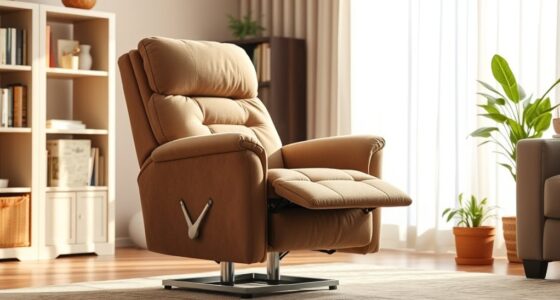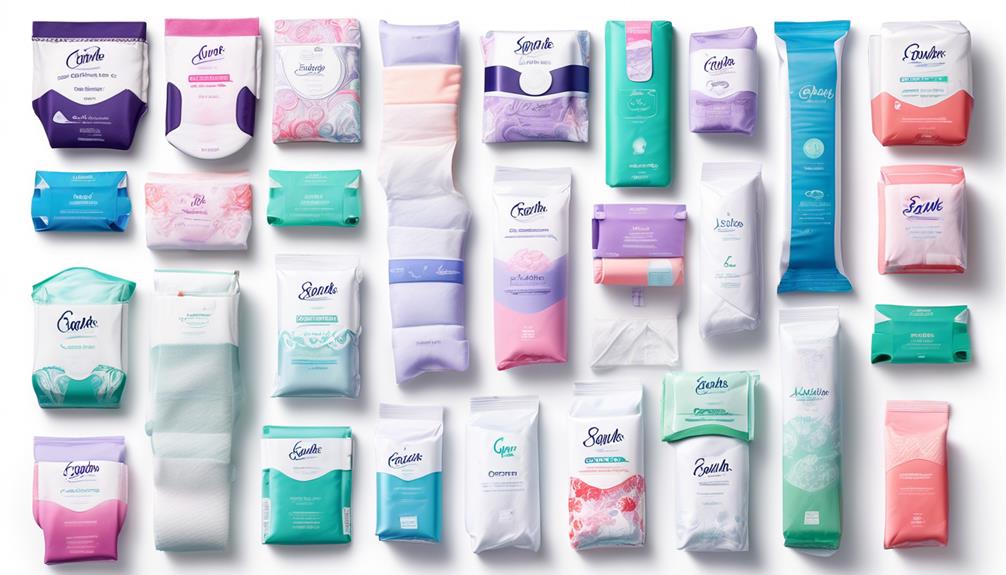We've put together an exciting list of the 15 best dementia memory matching games that truly engage and stimulate cognitive function. From Assistex's uniquely designed cards to vibrant options like Keeping Busy's matching games, these activities promote social interaction and enhance memory recall. Each game is tailored to accommodate various skill levels, ensuring everyone can participate. If you're curious to find out which games made our top picks and why, stick around for the details!
Key Takeaways
- Assistex 2-in-1 Matching Memory Card Games offer familiar song lyrics and idioms, enhancing cognitive engagement for seniors with dementia.
- TaoBary and similar activity boards feature vibrant themes and thick cards, promoting storytelling and social interaction among players.
- Dreamorie Memory Matching Game includes a variety of skill levels, allowing for adaptable gameplay that caters to individual abilities and preferences.
- High-contrast visuals and large print in games improve readability, making them accessible for seniors with visual impairments.
- Prioritize safety and durability in game materials, ensuring a smooth experience with non-toxic finishes and stable designs.
Assistex 2 in 1 Matching Memory Card Games for Seniors
When it comes to engaging seniors, especially those facing dementia or Alzheimer's, the Assistex 2-in-1 Matching Memory Card Games stand out as an excellent choice. With 80 cards featuring familiar song lyrics and idioms, this game encourages memory retention and cognitive function. I love how it stimulates not just memory but also language skills while fostering emotional connections. Whether played solo or in a group, it promotes social interaction, which is so essential for mental health. The sturdy design with large print makes it easy to handle, ensuring everyone can join in the fun and benefit from this engaging activity.
Best For: Seniors experiencing early to middle stages of dementia or Alzheimer's, looking for engaging cognitive activities.
Pros:
- Stimulates memory retention and cognitive function using familiar song lyrics and idioms.
- Promotes social interaction through solo or group gameplay, enhancing mental health.
- Designed with large print and sturdy materials, making it accessible for seniors with dexterity issues.
Cons:
- May not be challenging enough for seniors with higher cognitive abilities.
- Requires some familiarity with the song lyrics and idioms, which could limit engagement for certain individuals.
- The gameplay might become repetitive over time, potentially reducing interest.
Assistex Matching Game Activity Board for Seniors with Dementia
The Assistex Matching Game Activity Board stands out as an ideal choice for seniors with dementia or Alzheimer's, thanks to its thoughtfully designed thick cards that are easy to grip. I love how it features five boards with 37 vibrant cards across engaging themes like flowers and ocean life. The dent design keeps cards in place, making gameplay smoother. This game not only stimulates memory but also lifts spirits, creating joyful moments for families. Plus, it includes conversation prompts and activity ideas, ensuring endless engagement. Overall, I highly recommend this game for its quality and ability to foster meaningful connections.
Best For: Seniors with dementia or Alzheimer's seeking engaging mental exercises and family interaction.
Pros:
- Visually stimulating: Features vibrant, high-resolution images that captivate and engage users.
- User-friendly design: Thick, easy-to-hold cards and secure dent design enhance gameplay experience.
- Encourages connection: Fosters meaningful interactions between seniors and their families through shared activities.
Cons:
- Limited number of cards: The set includes only 37 cards, which may not provide endless variety for long-term use.
- Themed engagement: Some seniors may prefer different themes that are not included in the current selection.
- Requires supervision: Caregiver assistance may be needed to facilitate gameplay for seniors with advanced dementia.
Keeping Busy Match The Photo Game for Seniors with Dementia
For seniors with dementia, including those facing Alzheimer's or recovery from strokes, Keeping Busy Match The Photo Game stands out as an ideal choice. The game features vibrant, laminated cards that engage participants while offering memory matching activities tailored for cognitive disabilities. I love how it includes discussion prompts and a conversation guide booklet, encouraging reminiscing and deeper connections. It's adaptable to various abilities, ensuring everyone feels accomplished. Plus, the cognitive benefits—like improving dexterity and hand-eye coordination—are fantastic. With a solid customer rating, it's a trusted tool for caregivers looking to stimulate their loved ones' minds while having fun.
Best For: Seniors with dementia, including those with Alzheimer's or recovering from strokes, who need engaging cognitive activities.
Pros:
- Engaging Design: Features vibrant laminated cards and discussion prompts that encourage interaction and reminiscence.
- Cognitive Benefits: Offers brain training exercises that help improve dexterity, hand-eye coordination, and cognitive abilities.
- Adaptable: Suitable for various abilities, allowing users to feel a sense of accomplishment regardless of their stage in dementia.
Cons:
- Limited Number of Pieces: Only includes 2 pieces, which may not provide extensive gameplay options.
- Size Constraints: The game dimensions (11L x 9W) might limit the playing area for some users.
- Mixed Reviews: While generally well-rated, some users may find the prompts less effective depending on individual preferences and needs.
Keeping Busy Tile Matching Memory Games for Dementia Activities for Seniors
Designed specifically for seniors, Keeping Busy Tile Matching Memory Games offer an engaging way to support cognitive function and fine motor skills. I love that these games come with 26 templates, so everyone can find a challenge that suits their level. The 11 wooden pieces are not only sturdy but also easy to grasp, which makes playtime enjoyable. Plus, the vibrant colors provide sensory stimulation, enhancing the experience. Whether playing solo or with family, I've noticed how they spark joy and interaction. With a compact design, they're perfect for on-the-go fun, ensuring that seniors stay engaged anytime, anywhere.
Best For: Seniors with dementia or Alzheimer's looking for engaging and stimulating activities to enhance cognitive function and fine motor skills.
Pros:
- Varied Difficulty Levels: 26 templates allow users to choose challenges that match their cognitive abilities, catering to a wide range of skill levels.
- High-Quality Materials: Made from durable wooden pieces that are easy to grasp, ensuring a pleasant and safe playing experience.
- Encourages Interaction: Ideal for both solo play and family engagement, promoting quality time with loved ones.
Cons:
- Limited Number of Pieces: While 11 pieces are engaging, some users may find the set too small for larger group activities.
- Potential Overstimulation: The vibrant colors, while beneficial for sensory enjoyment, may overwhelm some seniors with heightened sensitivity.
- Varied Experience Levels: The differing cognitive abilities among dementia patients may lead to frustration for some users if the templates are not well matched to their needs.
Dementia Products for Elderly, Wooden Tiles Matching Game
Looking for a fun and engaging way to stimulate cognitive skills in seniors? I've found the KUMUNI Wooden Tiles Matching Game to be a fantastic option. It features 40 templates across various difficulty levels, offering something for everyone. Made from solid wood, the 13 jumbo blocks are not only vibrant but also easy to handle, enhancing dexterity and coordination. Whether at home or in assisted living facilities, this game encourages social interaction and friendly competition. Plus, it's highly rated for its quality and effectiveness in cognitive stimulation, making it a great addition to any dementia-friendly activity repertoire.
Best For: Seniors with cognitive challenges, as well as children and teenagers seeking engaging and stimulating activities.
Pros:
- High-quality construction: Made from solid wood with smooth surfaces for comfortable handling.
- Cognitive benefits: Improves logical thinking, dexterity, and coordination while providing enjoyable entertainment.
- Versatile use: Suitable for various environments, including homes, classrooms, and assisted living facilities.
Cons:
- Color contrast issues: Some users may find certain color contrasts challenging due to diminished eyesight.
- Limited complexity for advanced users: Advanced users may find the game too easy after mastering the templates.
- Requires supervision: Seniors with significant cognitive decline may need assistance to fully engage with the game.
TaoBary 5 Pack Matching Game Activity Board for Seniors
The TaoBary 5 Pack Matching Game Activity Board stands out as an excellent choice for seniors grappling with dementia or memory loss. With five vibrant themes and 30 thick, easy-to-grip cards, it encourages cognitive engagement and conversation. The indented design keeps cards securely in place, making it user-friendly. I love how the bright images spark joy and promote storytelling, fostering confidence and independence. Safety is a priority, too, with rounded edges and non-toxic materials. Measuring 11.22 x 8.58 inches, it's compact and easy to store. Overall, it's a delightful way to stimulate minds while having fun.
Best For: Seniors with dementia or memory loss seeking engaging and cognitive activities that promote interaction and storytelling.
Pros:
- Brightly colored themes and vivid images enhance visual engagement and enjoyment.
- Thicker cards are designed for easy grip, catering to individuals with limited dexterity.
- Indented design keeps cards securely in place, making the game user-friendly and reducing frustration.
Cons:
- Some users may find the overall size of the boards and cards to be cumbersome.
- Limited storage options may pose challenges for organization after play.
- Feedback suggests that the game may not be suitable for those with more advanced stages of dementia.
Dementia Products – Alzheimer's Activities for Seniors
For seniors and adults with Alzheimer's, dementia memory matching games offer an engaging way to enhance cognitive function and memory retention. I've found that wooden geometric puzzles, with their various difficulty levels, provide enjoyable challenges. The 5.9 x 5.9-inch board and 1 x 1-inch blocks encourage critical thinking and problem-solving. Many users share positive experiences, noting the joy these games bring to family gatherings. However, keep in mind that some seniors may struggle with hand dexterity or eyesight. Overall, these activities are perfect for keeping minds sharp while fostering connections among loved ones.
Best For: Seniors and adults with Alzheimer's looking to improve cognitive function and engage in enjoyable activities with family.
Pros:
- Encourages critical thinking and problem-solving skills through varying difficulty levels.
- Positive user experiences highlight enjoyment and engagement during family gatherings.
- Adaptable for different skill levels, making it suitable for a wide range of users.
Cons:
- Some individuals may struggle with limited hand dexterity or poor eyesight, affecting their ability to play.
- Certain users have reported difficulties with the size of puzzle pieces, which can be challenging to manipulate.
- Mixed reviews regarding product quality, with some expressing dissatisfaction.
Sorting Board Matching Activity for Dementia Patients
Designed specifically for seniors with dementia and Alzheimer's, the ECROUATY Sorting Board Matching Activity stands out as an engaging tool to stimulate cognitive function and problem-solving skills. This magnetic shape and color matching game features 30 card themes, enhancing memory and recognition abilities. I've noticed that it not only promotes social interaction, reducing feelings of isolation, but also provides a calming, multi-sensory experience. Its high-quality wooden design guarantees safety, while the large, easy-to-hold pieces accommodate all cognitive levels. With a solid customer rating of 4.6, it's a valuable addition to any dementia care routine.
Best For: Seniors with dementia and Alzheimer's looking for an engaging activity that stimulates cognitive function and promotes social interaction.
Pros:
- Encourages memory and recognition skills through a variety of themes.
- Provides a calming multi-sensory experience, enhancing social interaction among users.
- Safe and accessible design with large, easy-to-hold pieces suitable for all cognitive levels.
Cons:
- Guide cards can be easily misplaced, indicating a need for better storage solutions.
- Some users may find the game too simple for advanced stages of dementia.
- Limited appeal for caregivers seeking more complex activities for seniors with higher cognitive abilities.
Matching Game for Adults with Dementia Activities
Cognitive engagement is essential for adults with dementia, making matching games an excellent choice to stimulate their minds. I've seen firsthand how these games improve cognitive function, helping memory retention while keeping boredom at bay. They not only promote social interaction but also encourage communication among seniors. With large, easy-to-read cards and simple rules, they're accessible for everyone, including those with limited mobility. The quality design guarantees safety, and I've received positive feedback from caregivers who appreciate their effectiveness. While some tweaks could enhance the experience, the joy they bring is undeniable and makes a meaningful difference in our lives.
Best For: Adults with dementia seeking cognitive engagement, social interaction, and enjoyable activities.
Pros:
- Promotes cognitive function and memory retention through engaging gameplay.
- Encourages social interaction and communication among seniors, enhancing companionship.
- Designed with large, easy-to-read cards and safety features for accessibility.
Cons:
- Some users find difficulty with certain joints in the game's construction.
- Mixed reviews on age appropriateness and target audience clarity.
- Disappointment reported regarding branding and packaging suitability for dementia patients.
Relish Animal Snap Card Game for Dementia Activities
The Relish Animal Snap Card Game stands out as an excellent choice for mid-stage dementia patients, as it features vibrant, easily recognizable images that facilitate engaging gameplay. I love how this game includes three options—Snap, Pairs, and Full House—allowing us to mix things up. The thick, durable cards are easy to clean, making them perfect for regular use. Plus, they encourage cognitive stimulation, which is so important. I've seen firsthand how they spark creativity and provide a sense of accomplishment. Overall, this game is a wonderful gift for loved ones, offering fun and meaningful interaction without a focus on dementia.
Best For: The Relish Animal Snap Card Game is best for mid-stage dementia patients seeking engaging and meaningful activities.
Pros:
- Easy-to-recognize images in bold colors enhance gameplay and engagement.
- Durable, easy-to-clean cards ensure long-term use and maintenance.
- Offers multiple game options (Snap, Pairs, Full House) for variety and mental stimulation.
Cons:
- May not be suitable for advanced stage dementia patients who require simpler activities.
- Limited appeal for individuals who prefer more complex or strategic games.
- The packaging does not provide specific information about cognitive benefits, which may be a consideration for some buyers.
Assistex 2 in 1 Matching Memory Card Games for Seniors
For seniors battling dementia or Alzheimer's, the Assistex 2-in-1 Matching Memory Card Games stand out as an excellent choice. With 80 cards featuring familiar song lyrics and idioms, these games stimulate memory and cognitive function effectively. I love how they encourage both solo and group play, promoting social interaction, which is essential for mental health. The sturdy design with large print makes handling easy, even for those with dexterity issues. Plus, the included flyer offers helpful conversation prompts. Rated 4.3 stars, users rave about the nostalgic value, making it a delightful experience for both seniors and their families.
Best For: Seniors dealing with dementia or Alzheimer's who need cognitive stimulation through engaging and familiar activities.
Pros:
- Encourages memory retention and cognitive function through familiar song lyrics and idioms.
- Supports both solo and group play, enhancing social interaction and mental health.
- Designed with sturdy materials and large print for ease of handling, ideal for those with dexterity issues.
Cons:
- May not be suitable for seniors in advanced stages of dementia who may struggle with gameplay.
- Limited gameplay variations could lead to repetitive use over time.
- Some users might find the content less engaging if they are not familiar with the lyrics or idioms included.
Dementia Activities for Seniors Memory Matching Game
Designed specifically for dementia patients, the Dreamorie Dementia Activities for Seniors Memory Matching Game offers an engaging and interactive way to stimulate cognitive functions. With 36 animal figures and 54 double-sided game cards, it's perfect for enhancing memory and observation skills. I love how the large cards with bold fonts make it easy to identify images. The game includes beginner and advanced modes, ensuring everyone can enjoy it. Not only does it boost hand-eye coordination, but it also encourages family bonding. This game has truly become a favorite in our home, bringing joy and mental stimulation to my loved ones.
Best For: Seniors with dementia looking for engaging cognitive activities that promote memory and family bonding. These activities not only help improve cognitive functioning but also create meaningful moments between seniors and their loved ones. Family members can incorporate these engaging exercises into their visits, enhancing both memory recall and emotional connections. For caregivers seeking to enhance the experience, exploring options like the best caregiver pager systems can ensure seamless communication while they support their loved ones during these important interactions.
Pros:
- Encourages cognitive engagement and improves memory skills through interactive gameplay.
- Suitable for various skill levels with beginner and advanced game modes.
- Durable materials ensure longevity, making it a reliable choice for frequent use.
Cons:
- A storage bag for the animal figures is not included, which may lead to potential loss of pieces.
- May require supervision or assistance for some seniors, depending on their cognitive ability.
- Limited to animal themes; may not appeal to those who prefer other subjects or interests.
Dementia Products for Seniors – Wooden Tiles Matching Activities
Ideal for seniors facing cognitive challenges, the Neoflavie wooden tiles matching activities offer engaging gameplay that's both fun and beneficial. These premium wooden tiles come in vibrant colors, making them easy to handle. With 26 templates of varying difficulty, I can tailor the challenge to suit anyone's skill level. I've noticed how this activity enhances logical thinking, coordination, and memory. Caregivers appreciate the positive feedback, as users often show increased focus and enjoyment. Plus, the solid construction guarantees durability. This product truly provides a gentle cognitive workout that encourages engagement and a sense of accomplishment.
Best For: Seniors facing cognitive challenges, including those with dementia or Alzheimer's, who benefit from engaging and interactive memory games.
Pros:
- Enhanced Cognitive Skills: Improves logical thinking, memory, and coordination through engaging gameplay.
- Versatile Difficulty Levels: Offers 26 templates that cater to a wide range of skill levels, ensuring ongoing challenge and enjoyment.
- Durable and Accessible Design: Made from high-quality solid wood with vibrant colors, making it easy for seniors with limited dexterity to handle.
Cons:
- Limited to Matching Activities: Primarily focuses on matching games, which may not appeal to all seniors.
- Requires Supervision: May need caregiver involvement for maximum engagement and effectiveness.
- Potential for Frustration: Some users might find certain templates too challenging, leading to frustration instead of enjoyment.
Wooden Puzzle Matching Game for Dementia Activities
The Wooden Puzzle Matching Game stands out as an excellent choice for adults with dementia and Alzheimer's, thanks to its 20-piece premium wooden design that features colorful, high-quality blocks. I love how the thick, easy-to-grasp pieces enhance dexterity and sensory enjoyment. The bright colors and enchanting patterns really stimulate the brain and engage users without causing frustration. It's perfect for promoting social interaction among patients and provides meaningful activities for caregivers. Whether in nursing homes or at home, this puzzle offers therapeutic value and a sense of accomplishment, making it a thoughtful gift for elderly loved ones.
Best For: Adults with dementia, Alzheimer's, and those with mild cognitive impairment seeking engaging and therapeutic activities.
Pros:
- Bright colors and captivating patterns stimulate cognitive function and enhance engagement.
- Thick, easy-to-grasp pieces improve dexterity and provide sensory enjoyment.
- Suitable for various settings, making it versatile for both individual and group activities.
Cons:
- Some users reported minor issues with pieces moving in the tray during use.
- May not be challenging enough for individuals with advanced cognitive abilities.
- Limited to a 20-piece count, which may not satisfy users looking for more complex puzzles.
Double Color Matching Games for Dementia Patients
For seniors with dementia, Double Color Matching Games offer an engaging way to stay mentally active while providing essential cognitive stimulation. I love how these games include 16 wooden tiles that are easy for seniors to slide around, making them accessible and enjoyable. The vibrant colors and patterns not only catch the eye but also create a sense of accomplishment. With 20 double-sided cards, there's a variety of challenges that enhance observation and logic skills. Plus, it's a great way to relieve anxiety and boredom, keeping minds sharp and spirits high. It's truly a rewarding activity for everyone involved.
Best For: Seniors with dementia or Alzheimer's who need engaging cognitive stimulation and anxiety relief.
Pros:
- Enhances cognitive skills: The variety of challenges promotes observation, logic, and fine motor skills.
- Accessible design: Wooden tiles are easy to slide, making the game suitable for seniors with varying levels of dexterity.
- Colorful and engaging: Eye-catching colors and patterns create a sense of accomplishment and joy during play.
Cons:
- Limited complexity: Some users may find the game too simplistic for advanced cognitive stimulation.
- Requires supervision: Seniors may need assistance to fully engage with the game, especially those with severe dementia.
- Space requirements: The game may require a flat surface for play, which could be a limitation in smaller living spaces.
Factors to Consider When Choosing a Dementia Memory Matching Game

When we choose a dementia memory matching game, we need to take into account several key factors that can enhance the experience. We'll want to look at cognitive engagement levels, visual clarity, and how easy it is to handle the pieces. Additionally, the game's theme should be relevant and interesting while being adaptable to different skill levels.
Cognitive Engagement Levels
Choosing a dementia memory matching game requires careful consideration of cognitive engagement levels, as these can greatly impact a player's experience. We should look for games tailored to individual cognitive abilities, promoting a sense of accomplishment without frustration. Games that offer varying difficulty levels can accommodate the diverse stages of dementia patients, making it easier for everyone to participate. Engaging gameplay featuring familiar images or phrases can stimulate long-term memories and encourage interactive participation. Additionally, activities that foster social interaction, like playing in groups or with family, enhance cognitive engagement by building communication and emotional connections. By focusing on these factors, we can guarantee that each game is both enjoyable and beneficial for all players involved.
Visual Clarity and Contrast
Engaging in dementia memory matching games requires more than just a focus on cognitive abilities; visual clarity and contrast play a significant role in the overall experience. We need to guarantee the images and text are easily discernible, especially for those with visual impairments. High contrast between images and backgrounds allows seniors to quickly identify and match cards, reducing frustration. Large print and bold fonts enhance readability, making participation easier. Bright, vibrant colors can stimulate interest and enjoyment, encouraging cognitive activity. Additionally, using clear and simple imagery helps avoid confusion, guaranteeing players can easily associate cards with their matches. By prioritizing these visual elements, we can create a more enjoyable and effective gaming experience for everyone involved.
Ease of Handling
Selecting the right dementia memory matching game involves several important factors, with ease of handling being a top priority. We need to choose cards made from thick, sturdy materials, as they help seniors with dexterity issues. Large print and bold images greatly enhance visibility, making it easier for everyone to read and identify cards without straining their eyesight. We should also consider the weight of the cards; they should be manageable, allowing easy grasping and manipulation during gameplay. Textured surfaces and easy-to-grip designs can provide comfort for users with tactile sensitivity. Additionally, games featuring indentations or holders for cards prevent shifting, enabling seniors to focus on gameplay without frustration. These elements guarantee a more enjoyable experience for all players.
Theme Relevance and Interest
When we consider a dementia memory matching game, the relevance of its theme plays an essential role in fostering engagement and enjoyment. Choosing themes that resonate with an individual's interests—like animals, nature, or familiar songs—can greatly enhance their emotional connection during gameplay. Nostalgic elements, such as classic song lyrics or idioms, often trigger long-term memories, bringing a sense of joy and accomplishment. Additionally, selecting themes based on past experiences or hobbies encourages meaningful interactions and conversations, enriching the gaming experience. High-resolution images of familiar subjects stimulate cognitive function and aid memory recall. By tailoring theme relevance to the user's preferences, we can maintain motivation and encourage consistent participation, which is vital for mental health.
Adaptability to Skill Levels
Choosing the right dementia memory matching game means considering how adaptable it is to different skill levels. We should look for games that offer a range of difficulty levels, from beginner to advanced, so everyone can find a suitable challenge. Games with multiple gameplay modes allow us to gradually increase complexity, fostering a sense of accomplishment. It's also important to find games with clear instructions and flexible rules, making it easier for caregivers to tailor the experience to individual needs. Engaging visuals that are age-appropriate and recognizable can enhance participation, while tactile elements and larger pieces help those with dexterity issues. By focusing on adaptability, we can guarantee everyone enjoys the game, regardless of their cognitive or physical abilities.
Safety and Durability
Safety and durability are essential factors in selecting a dementia memory matching game. We should prioritize games made from high-quality materials like solid wood or durable plastic. These materials guarantee the game lasts through regular use. It's important to choose games with smooth edges and non-toxic finishes, minimizing injury risks for seniors with cognitive impairments. We need to take into account the weight and size of the game pieces; they should be thick and easy to grasp, accommodating those with limited dexterity. Additionally, evaluating the game's design for stability—features like indentations can prevent pieces from shifting—greatly enhances the experience. Finally, let's verify the game is easy to clean and maintain, as hygiene is essential for elderly individuals, especially in care facilities.
Social Interaction Opportunities
Selecting a dementia memory matching game isn't just about safety and durability; it also opens doors for social interaction opportunities. These games can notably enhance emotional well-being by fostering connections between seniors and their caregivers or family members. Playing in groups encourages communication and collaboration, essential for reducing feelings of isolation. When we engage in shared activities like memory games, we can improve mood and cognitive function, as social interactions stimulate mental engagement and create a sense of accomplishment. Many games cater to various cognitive levels, ensuring everyone can contribute and enjoy the experience together. Regular participation in these social activities can improve the quality of life for seniors with dementia, helping maintain cognitive abilities and reduce behavioral issues.
Frequently Asked Questions
What Age Group Benefits Most From Dementia Memory Matching Games?
When we think about age groups benefiting from memory matching games, we realize that seniors, particularly those experiencing early to moderate stages of dementia, gain the most. These games encourage cognitive engagement and memory recall, which can enhance their daily experiences. However, we shouldn't overlook that caregivers and family members can also find joy and connection while playing together. Ultimately, these games create opportunities for interaction across various ages, fostering meaningful relationships.
How Often Should Seniors Play Memory Matching Games?
Imagine a garden where flowers bloom with regular care. Just like those flowers, seniors flourish when they engage in memory matching games regularly. We recommend playing these games several times a week, as consistency nurtures cognitive growth. It's like watering plants; too little, and they wilt. By making it a routine, we can enhance memory and social interaction, creating a vibrant environment for our loved ones to thrive and enjoy.
Can These Games Be Played Alone or Require a Partner?
We can definitely play memory matching games alone, but having a partner can make it more enjoyable and engaging. When we play together, we create a lively atmosphere that encourages laughter and conversation. Plus, a partner can provide gentle support and motivation, which can enhance our experience. Ultimately, it's about what we prefer—whether we want some quiet time or a fun social activity with someone else. Both options have their benefits!
Are There Specific Themes That Engage Dementia Patients Better?
When we consider themes that resonate with dementia patients, we often find that familiarity plays an essential role. Themes based on past hobbies, favorite places, or beloved animals can spark joyful memories and engagement. We've noticed that personal touches, like family photos or nostalgic music, tend to enhance the experience. By focusing on what's meaningful to them, we can create a more stimulating and enjoyable environment for everyone involved.
How Can Caregivers Assess Progress While Playing These Games?
We might worry that evaluating progress during games feels overwhelming, but it's simpler than we think. While playing, we can observe our loved one's engagement and ability to recall the matching pairs. Taking notes on their responses and tracking improvements over time helps us see their cognitive development. Regularly discussing their feelings about the game also gives us insight into their enjoyment and motivation, ensuring we support their journey effectively.
Conclusion
To sum up, choosing the right memory matching game can truly make a world of difference for those living with dementia. By engaging their minds and providing enjoyable activities, we can help stimulate cognitive function and foster connections. Remember, it's not just about the game itself; it's about creating moments of joy and engagement. So, let's put our best foot forward and select games that resonate, ensuring our loved ones stay mentally active and connected.









